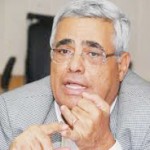Egyptians are at the edge of their seat to know the results of Saturday’s constitutional referendum. Columnists wonder how Egyptians will behave in the coming months, taking punts on what comes next.
What next?
Hassan Nafaa
Al-Masry Al-Youm newspaper
Nafaa asks what will come after the constitutional referendum. Regardless of the result, the writer denounces the political polarisation produced by the vote. Tens of thousands were driven into the street to either support or oppose President Morsy, the result of which was hundreds injured and dozens killed.
This climate has weakened the mutual trust between the presidency and the judiciary, particularly after Morsy sacked former Prosecutor General Abdel Meguid Mahmoud. Egyptians are now confused, says the writer. They want to know who is really in charge in the palace.
Looking ahead to parliamentary elections, Nafaa has little hope for a transparent vote, keeping in mind the experience in the constitutional referendum so far. Nafaa, however, suggests a number of proposals to solve the current dilemma. He calls on Morsy to immediately dismiss the current government and appoint a new cabinet to work towards national accord.
The writer also advises Morsy to make a decision to ban political protests for at least six months, to pave the way for the new government to pursue national unity. He finally recommends the new cabinet should be the only institution responsible for supervising the upcoming parliamentary elections.
The referendum is poison
Wael Qandil
Al-Shorouk newspaper
It seems the current Egyptian opposition did not learn their lessons under Mubarak, writes Qandil. He criticises the opposition’s changeable position towards political developments. The 25 January revolution has always been exceptional for its unified slogans, but now opposition groups are changing their demands reguarly.
As thousands of protesters surrounded the Presidential Palace to denounce the 21 November constitutional declaration, they unexpectedly changed their position after it was cancelled and started calling for the cancellation of the referendum instead.
After they had completely opposed the constitution, the writer wonders how the opposition could then call upon Egyptians to queue up to vote “No”. If they disagree on the constitution, the writer believes it is illogical to campaign for or against the idea of voting.
Believing in the opposition, Qandil was disappointed to hear different slogans chanted in separate marches against Morsy. Some chant against the constitutional declaration, others against the constitutional referendum and others against Morsy himself. Unlike the situation in the 2011 uprising, the opposition today is fractured.
The new terrorism
Fahmy Howeidy
Al-Shorouk newspaper
Howeidy warns of a new type of terrorism threatening our polarised society. Egyptians are viewing each other as enemies. The recent clashes have shown that the community is sinking into fear and confusion. Howeidy says fearing authority would be preferable to fearing society itself. Egyptians were more united under Mubarak, Howeidy believes, although they were deprived of their rights to freely express their opinions. Now that Morsy rules the country, people are facing off violently.
Howeidy says Egyptians are not afraid of state institutions as they used to be. He explains that during Mubarak’s reign, everybody was afraid of the government. Today, even the police forces are not a source of fear. Egyptians fear each other instead. The long years of authoritarianism managed to oppress Egyptians. Now though, this dictatorship has led them to fight each other and to produce an advanced stage of terrorism; societal terrorism.




